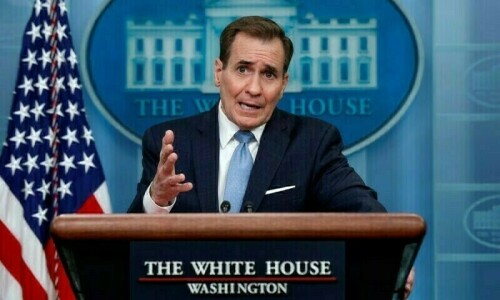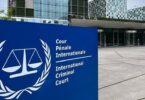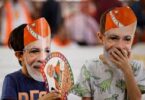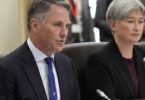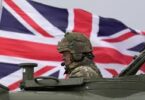WASHINGTON — An unprecedented allegation by one leading democracy essentially accusing another of carrying out a political assassination on its soil is causing significant concern among key allies of both nations.
Officials in Washington and London are assessing the ramifications after Canada publicly tied India’s government to the killing of a Sikh leader three months ago. Canada on Monday announced that in response, it had expelled the top Indian intelligence official in Canada. India on Tuesday retaliated by ordering a senior Canadian diplomat to depart the country.
“We are deeply concerned about the allegations referenced by Prime Minister [Justin] Trudeau,” said Adrienne Watson, spokesperson for the White House National Security Council. “We remain in regular contact with our Canadian partners. It is critical that Canada’s investigation proceed, and the perpetrators be brought to justice.”
The United States is urging India to cooperate with the Canadian investigation, according to a senior State Department official.
India’s government says any allegations of involvement by its officials in acts of violence in Canada are “absurd and motivated.”
“The government of India needs to take this matter with the utmost seriousness. We are doing that, we are not looking to provoke or escalate,” Trudeau told reporters on Tuesday.
The allegations, however, “have the potential to cloud out other strategic challenges Canada faces, such as foreign interference by China and Russia. The timing comes less than one year after Canada’s release of an Indo-Pacific strategy which highlighted the aspirations for greater partnership with India,” noted Jonathan Berkshire Miller, director of foreign affairs, national security and defense at Canada’s Macdonald-Laurier Institute.
Previously, the US and Australia had expressed “deep concern” over Canada’s accusations, while Britain said it was in close touch with its Canadian partners about the “serious allegations”.
“We have been in close contact with our Canadian colleagues about this. We’re quite concerned about the allegations. We think it’s important there is a full and open investigation and we would urge the Indian Government to cooperate with that investigation,” a senior State Department official had said.
He said US authorities were in close contact with their Canadian counterparts about allegations the Indian government was involved in the murder and urged India to cooperate with the investigation.
In Canberra, a spokesperson for Australian foreign minister Wong had said Australia was “deeply concerned by these allegations and notes ongoing investigations into this matter”.
“We are closely engaged with partners on developments. We have conveyed our concerns at senior levels to India,” said the Australian official.
British Foreign Secretary James Cleverly had said his government backed a Canadian investigation to determine whether India was involved in Nijjar’s killing.
“I think it’s incredibly important that we allow the Canadian authorities to conduct their investigation,” said Cleverly, adding it would be “unhelpful” to speculate on their outcome.
India’s ‘network of extra-territorial killings’
Earlier today, Foreign Office (FO) spokesperson Mumtaz Zahra Baloch said the Canadian accusation showed New Delhi’s “network of extra-territorial killings” had gone global, state broadcaster Radio Pakistan reported.
The matter was brought up during a press briefing in Islamabad where the FO spokesperson highlighted that the Indian intelligence agency, Research and Analysis Wing (RAW), had been “actively involved in abductions and assassinations in South Asia” the Radio Pakistan report said.
It quoted Baloch as saying that Pakistan had remained a “target of a series of targeted killings and espionage by RAW”.
“In December last year, Pakistan released a comprehensive dossier providing concrete and irrefutable evidence of India’s involvement in the Lahore attack of June 2021. The attack was planned and executed by Indian intelligence,” she said, adding that in 2016, a high-ranking Indian military officer Kulbhushan Jadhav confessed to his involvement in directing, financing and executing terror and sabotage in Pakistan.
She termed “India’s assassination of a Canadian national on Canadian soil a clear violation of international law and the UN principle of state sovereignty”, according to the report.
“It is also a reckless and irresponsible act that calls into question India’s reliability as a credible international partner and its claims for enhanced global responsibilities,” she added.
Replying to a question about statements by Indian leadership accusing Pakistan of being involved in an operation in Anantnag and supporting fighters there, she said: “Pakistan has said time and again that India has a habit of blaming Pakistan for anything that happens under its watch, especially in IIOJK (Indian Illegally Occupied Jammu Kashmir). We reject such accusations and concocted stories.”
To a question on Indian threats regarding the issue, Baloch said: “Pakistan has the capacity and the will to defend itself; it has done so in the past and it will continue to do so.”
On Tuesday, Foreign Secretary Syrus Qazi said Pakistan was not surprised by the Canadian accusation and the world must recognise the ways of the country it considered “a supposedly indispensable ally”.
Qazi’s remarks came during a press briefing at the United Nations Mission in New York, where he is accompanying interim Prime Minister Anwaarul Haq Kakar to attend the 78th UN General Assembly session.
“We are aware of the nature of our eastern neighbour, we know what they are capable of … so it is not a surprise for us.
“We caught [one of their] serving naval intelligence officers on our soil. He is in our custody and admitted that he came here to create instability and spread evil,” he said when asked for a comment on the allegation levelled against India.
“There must be some truth to the Canadian premier’s allegation, that’s why they levelled it,” he said, adding that the situation was developing, “but going by our experience, we are not surprised”.
Answering a follow-up question, the foreign secretary maintained that most of the time, Indian involvement was found in instability in Pakistan. “Kulbhushan Jadhav] is a living example of it, and the world needs to know,” he added.
In response to a question about conflicts with India, Qazi refused that Pakistan’s responses had been defensive.
“If there is any country that understands India correctly, that’s us. And we are the only country in many respects that is not afraid of India,” he further stated, highlighting that Pakistan had been resolutely protecting its freedom against a rival country 60 times bigger in size.
“We have been doing this for the past 70 years … and will do it again when the need arises.”
Again referring to the India-Canada row, he added, “This is no surprise for us, but the world must realise what are the ways of the country they have made their supposedly indispensable ally.”
India, Canada update travel advisory
Today, India warned its citizens against visiting parts of Canada, the latest salvo in a diplomatic row over allegations that New Delhi was involved in Nijjar’s killing.
Without explicitly referring to the row, India’s foreign ministry said it was concerned for the safety of its citizens in Canada because of “politically condoned hate crimes and criminal violence”.
“Threats have particularly targeted Indian diplomats and sections of the Indian community who oppose the anti-India agenda,” a ministry statement said.
“Indian nationals are therefore advised to avoid travelling to regions and potential venues in Canada that have seen such incidents.”
The advisory did not name specific cities or locations for Indians to avoid.
Earlier, Canada also updated its advisory for travel to India, with Indian media reporting that Ottawa had warned its citizens against visiting occupied Kashmir due to a militancy threat.
A statement on the Canadian government’s website, updated on Monday, said: “Avoid all travel to the Union Territory of Jammu and Kashmir due to the unpredictable security situation. There is a threat of terrorism, militancy, civil unrest and kidnapping. This advisory excludes travelling to or within the Union Territory of Ladakh.”
India’s opposition dismisses Canada’s suspicions
India’s main opposition Congress party has backed the government’s rejection of Canada’s suspicions that New Delhi’s agents had links to Nijjar’s murder, and urged a stand against threats to the country’s sovereignty.
Congress spokespersons backed what they called India’s “fight against terrorism” and criticised Trudeau.
“Trudeau’s defence of declared terrorist Hardeep Singh Nijjar is absolutely shameful and shows how much the present Canadian regime is in bed with Khalistani sympathisers,” Abhishek Manu Singhvi, a senior Congress lawmaker, posted on social media platform X, formerly known as Twitter.
Sikh separatists demand that their homeland “Khalistan”, meaning “the land of the pure”, be created out of Punjab. Its creation was the goal of a bloody Sikh insurgency in the 1980s and 1990s in India’s northern state of Punjab during which tens of thousands were killed.
As the ruling party at the time, Congress led the fight against the separatists and eventually suppressed the campaign, but New Delhi remains wary of any revival.
“Our country’s interests and concerns must be kept paramount at all times,” Jairam Ramesh, the chief spokesperson of Congress, said in a posting on X.
“The Indian National Congress has always believed that our country’s fight against terrorism has to be uncompromising, especially when terrorism threatens India’s sovereignty, unity and integrity.”
The insurgency also took the lives of key Congress leaders prime minister Indira Gandhi, who was assassinated by her Sikh bodyguards in 1984, and Punjab chief minister Beant Singh, who was killed in a bomb blast by Sikh separatists in 1995.
The row over the Sikh leader’s killing is the latest in an escalating row between India and Canada.
There were signs of a brewing crisis before PM Trudeau revealed the probe into Nijjar’s death on Monday.
Modi had expressed “strong concerns about continuing anti-India activities of extremist elements in Canada” during his meeting with Trudeau at the G20.
Canada had also suspended negotiations for a free-trade agreement with India, and last week its trade minister cancelled a trip to the country planned for October.
’Shocked, but not surprised
A representative of the World Sikh Organisation of Canada, Mukhbir Singh, has said his countrymen may have been “shocked” by Trudeau’s assertion “but it was no surprise to the Sikh community”.
“For decades, India has targeted Sikhs in Canada with espionage, disinformation and now murder,” he alleged.
Balraj Singh Nijjar, son of the slain leader, said: “It was just a matter of time for when the truth would come out.”
He added, referring to government authorities: “Hopefully, you can take this a step further and get specific individuals.”
The head of Canada’s New Democratic Party, Jagmeet Singh, an ally of Trudeau, called for the inclusion of India in a probe launched in September of alleged interference in Canadian affairs by other countries, especially China.

